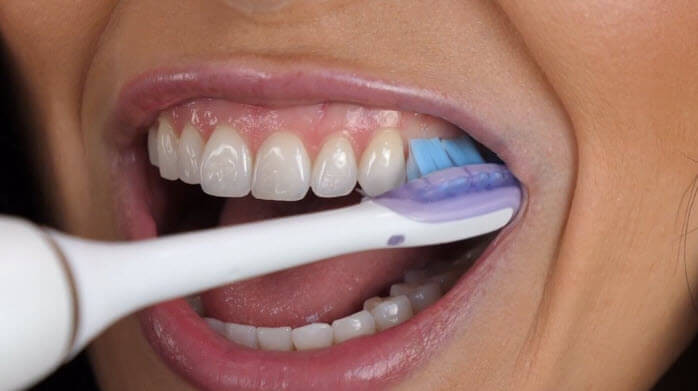This comprehensive guide is your go-to resource for achieving optimal oral health and a dazzling smile. Maintaining good oral hygiene is crucial not only for a beautiful smile but also for overall health. Poor dental care can lead to cavities, gum disease, and other serious health issues.
Table of Contents
In this guide, we will cover necessary oral care tips to help you develop a solid routine, recommend products for achieving a healthy mouth, and provide insight into professional dental care that can benefit your oral hygiene regimen. By following the advice in this guide, you can have the confidence of knowing you are taking the necessary steps to maintain a healthy smile for years to come. Let’s dive in!
Key Takeaways:
- Brushing and flossing: Consistent brushing and flossing are important for maintaining good oral hygiene and preventing dental issues.
- Regular dental check-ups: Visiting your dentist regularly for check-ups and cleanings can help detect and prevent any oral health problems early on.
- Healthy diet: Eating a balanced diet low in sugary and acidic foods can help prevent tooth decay and gum disease.
- Proper technique: Using the right technique when brushing and flossing is crucial for effectively cleaning your teeth and gums.
- Use of mouthwash: Incorporating fluoride mouthwash into your oral hygiene routine can help strengthen enamel and prevent cavities.
Understanding Oral Hygiene
You must understand the basics of oral hygiene to maintain a healthy smile. Proper oral hygiene involves taking care of your teeth and gums to prevent problems such as cavities, gum disease, and bad breath. Regular brushing, flossing, and dental check-ups are crucial components of a good oral hygiene routine.
Types of Oral Health Problems
- Cavities: Tooth decay is caused by bacteria that break down the tooth enamel.
- Gum Disease: Inflammation and infection of the gums.
- Bad Breath: Persistent foul odor in the mouth.
- Oral Cancer: Abnormal cell growth in the mouth.
- Tooth Sensitivity: Discomfort or pain when consuming hot or cold foods.
Perceiving early signs of these issues is crucial for timely intervention and prevention.
Factors Contributing to Dental Issues
You need to be aware of the factors that contribute to dental problems. Poor oral hygiene, unhealthy diet, smoking, and genetics can all play a role in the development of dental issues. Ignoring these factors can lead to more severe problems in the future.
- Poor Oral Hygiene: Not brushing and flossing regularly.
- Unhealthy Diet: High sugar intake and acidic foods can harm teeth.
- Smoking: Increases the risk of gum disease and oral cancer.
- Genetics: Some people are more prone to dental issues due to genetic factors.
After understanding these factors, you can take steps to address them and prevent dental problems.
Daily Oral Hygiene: Step-by-Step
Some of the most important aspects of maintaining good oral hygiene involve establishing a daily routine that includes brushing, flossing, and rinsing. By following these steps consistently, you can prevent dental issues and ensure a healthy smile for years to come.
| Essential Tools for Oral Care | Routine for a Healthy Mouth |
Essential Tools for Oral Care
Oral hygiene starts with having the right tools. This includes a soft-bristled toothbrush, fluoride toothpaste, dental floss, and mouthwash. These tools help in cleaning your teeth thoroughly, reaching areas where the toothbrush may not be able to access.
Routine for a Healthy Mouth
A necessary daily routine for a healthy mouth involves brushing your teeth at least twice a day, flossing once a day, and rinsing with mouthwash. Brushing helps remove plaque and bacteria that can lead to cavities and gum disease. Flossing is crucial for removing food particles and plaque from between teeth, where toothbrush bristles can’t reach. Using mouthwash can help kill bacteria and freshen your breath.
How to Use an Electric Toothbrush Correctly
- Put some toothpaste on: Just like with a regular toothbrush, squirt a pea-sized amount of toothpaste on the brush head.
- Tilt and brush: Hold the brush head against your teeth at a slant, like you’re making a number 7 with the handle.
- Let it do the work: Unlike a regular brush, you don’t need to scrub back and forth. Electric toothbrushes have a special head that spins or vibrates to clean your teeth. All you need to do is gently guide the brush from tooth to tooth.
- Take your time: Spend a few seconds on each tooth, making sure to brush the front, back, and top of each one. Some electric toothbrushes even have timers built in that will beep every 30 seconds to remind you to move to a new section of your mouth.
- Don’t forget the back: It’s easy to forget about the teeth in the back of your mouth, but they’re important too! Tilt the brush head and reach back there gently.
- Brush your tongue: Some electric toothbrushes have a special tongue cleaning section on the back of the brush head. You can use this to gently brush your tongue and freshen your breath.
- Rinse and smile! After two minutes of brushing, rinse your mouth with water and admire your sparkling smile!
Here are some bonus tips:
- Be gentle! Don’t press down too hard, or you could irritate your gums.
- Rinse the brush head with water after each use.
- Replace the brush head every 3 months, or sooner if the bristles look frayed.
By following these steps, you can make sure you’re getting a thorough cleaning with your electric toothbrush and keeping your smile healthy!
Advanced Oral Hygiene Tips
Unlike basic oral hygiene practices, advanced oral hygiene tips require additional care and effort to maintain a healthy smile. Here are some crucial tips to take your oral hygiene routine to the next level:
- Diet and Nutrition for Oral Health
Pros Cons Consuming dairy products for calcium Excessive sugar intake can lead to decay Drinking water to wash away food particles Acidic foods can erode tooth enamel - Pros and Cons of Dental Products
Pros Cons Fluoride toothpaste strengthens enamel Some products may contain harmful chemicals Mouthwash can freshen breath Overuse of whitening products can damage teeth - Hygiene
Pros Cons Regular brushing and flossing prevent cavities Using a hard toothbrush can cause enamel erosion Regular dental check-ups detect issues early Some dental products may contain allergens
Assuming a balanced diet is crucial for overall health, it also plays a significant role in oral health. Foods rich in calcium strengthen teeth, while sugary and acidic foods can lead to decay and enamel erosion. Maintaining a nutritious diet and minimizing snacking can promote a healthy mouth.
Pros and Cons of Dental Products
Hygiene is crucial for oral health, but the products we use can have both positive and negative effects. Fluoride toothpaste can strengthen enamel, while some products may contain harmful chemicals. Mouthwash can freshen breath, but overuse of whitening products can damage teeth. It’s important to choose dental products carefully and follow recommended usage to avoid any adverse effects.
With regular dental visits, proper hygiene practices, and a balanced diet, you can achieve optimal oral health and maintain a dazzling smile. Remember to consider the pros and cons of dental products before incorporating them into your routine, and always consult with your dentist for personalized recommendations.
Professional Dental Care Strategies
When to Seek Professional Help
Now is the time to take stock of your oral health and recognize when it’s necessary to seek professional help. If you experience persistent bad breath, swollen or bleeding gums, tooth sensitivity, or any other dental issue that doesn’t improve with regular brushing and flossing, it’s crucial to make an appointment with your dentist. These could be signs of underlying problems that require professional attention.
Understanding Dental Treatments and Procedures
Now, let’s explore the world of dental treatments and procedures. Concerning maintaining a healthy smile, understanding the various treatments available is crucial. From routine cleanings and fillings to more advanced procedures like root canals and dental implants, each treatment plays a crucial role in preserving your oral health. The key is to consult a dental professional to determine the best course of action for your specific needs.
The importance of regular dental check-ups cannot be overstated. These appointments not only help in preventing dental issues but also in catching them early when treatments are less invasive and cost-effective. By staying proactive about your oral health and seeking professional care when needed, you can maintain a healthy smile for years to come.
Conclusion
Presently, oral hygiene is more important than ever for maintaining a healthy smile. By implementing the tips provided in this ultimate guide, you can effectively prevent cavities, gum disease, and other dental issues. Remember to brush and floss daily, visit your dentist regularly, and maintain a healthy diet. Your smile is worth the effort – so prioritize your oral health today!
FAQ
Q: Why is oral hygiene important for overall health?
A: Oral hygiene is important because it helps prevent dental problems such as cavities, gum disease, and bad breath. Additionally, poor oral health has been linked to serious health conditions like heart disease and diabetes.
Q: How often should I brush my teeth?
A: It is recommended to brush your teeth at least twice a day, once in the morning and once before bed. Brushing after meals is also beneficial to remove food particles and prevent plaque buildup.
Q: What is the correct way to floss?
A: When flossing, use about 18 inches of floss and gently glide it between your teeth using a back-and-forth motion. Curve the floss around each tooth in a C-shape to ensure you reach below the gumline.
Q: Is mouthwash necessary for good oral hygiene?
A: While not crucial, using mouthwash can provide additional benefits by killing bacteria, freshening breath, and reaching areas that may be missed with brushing and flossing alone.
Q: How often should I visit the dentist for check-ups?
A: It is recommended to visit the dentist every six months for a check-up and professional cleaning. Regular dental visits can help detect issues early and prevent serious dental problems in the future.
If you need any further information or assistance with this article, don’t hesitate to Contact Us





















